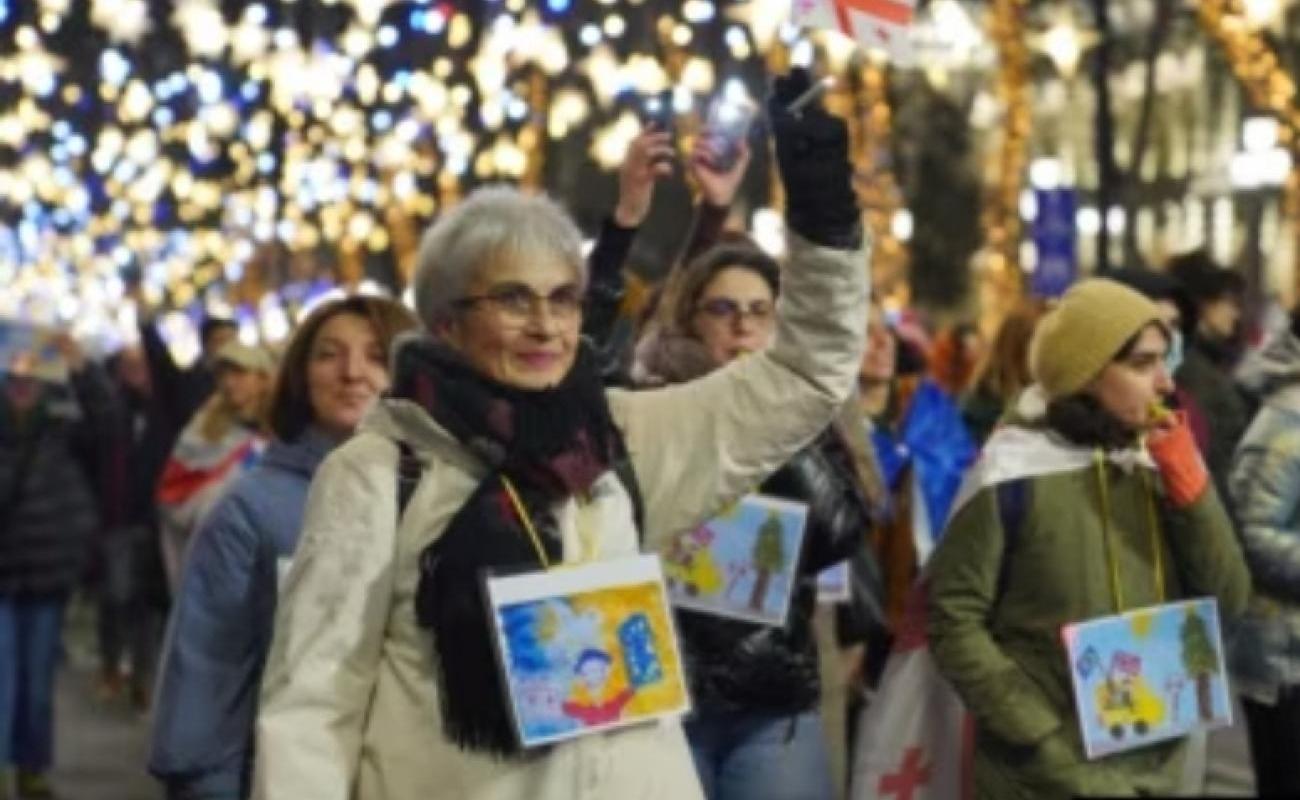Georgian Elections: OSCE Flags Vote-Buying, Violence, And ‘Instrumentalized’ Media In Final Report

The Organization for Security and Cooperation in Europe (OSCE) said in its final report on the October 26 parliamentary elections in Georgia that numerous issues “negatively impacted” the elections and eroded public trust.
The OSCE’s Office for Democratic Institutions and Human Rights (ODIHR) issued the final report on December 20.
The OSCE said shortly after the October 26 elections that it had recorded instances of vote-buying, double-voting, physical violence, and intimidation. The final report reiterates the organization’s concerns and offers recommendations to improve elections in Georgia.
“Numerous issues noted in our final report negatively impacted the integrity of these elections and eroded public trust in the process,” said Eoghan Murphy, who headed the ODIHR’s 2024 election observation mission to Georgia.
Murphy urged authorities in Georgia to urgently address all concerns about the elections, which gave the ruling Georgian Dream party more than 54 percent of the vote, enough to maintain control of the government.
Georgian Prime Minister Irakli Kobakhidze acknowledged that the final report contains “critical remarks,” including on the suppression of votes.
“In 76 percent of the polling stations where it observed, OSCE/ODIHR did not identify any irregularities at all,” he said at a briefing, adding that in other cases there were “isolated irregularities” that were identified. “These were related to incorrect ballot entry, improper arrangement of the polling station, so-called leaks, video recording, etc.”
According to Kobakhidze, the Georgian Dream government is ready to cooperate with the OSCE to implement its recommendations.
The report refers to the passage of a “foreign agents” law modeled on a similar Russian law, earlier in the year, saying the election took place amid “serious concerns about the impact of recently adopted legislation on fundamental freedoms and civil society.”
The law, which mandates that organizations receiving significant foreign funding register as “foreign agents,” took effect on August 1, sparking significant backlash from international and domestic actors.
The final report also cites pressure on voters and election day practices that “compromised the ability of some voters to cast their vote without fear of retribution.”
In addition, there was an overall lack of response to complaints in the post-election period, the report said, saying the ODIHR “found that cases were not considered sufficiently, limiting legal remedies.”
The report reiterates the negative impact of the “polarized and instrumentalized media” and limited campaign finance oversight. It notes that candidates were generally able to campaign freely, and candidates across 18 party lists competed, but a “significant imbalance in financial resources contributed to the uneven playing field.”
Demonstrators began gathering in central Tbilisi soon after the elections as criticism mounted over voting irregularities. The protests intensified after Kobakhidze announced that Tbilisi was suspending until 2028 talks with Brussels on Georgia’s bid to join the European Union.
The ODIHR notes that some protests were violently dispersed, resulting in numerous arrests and allegations of brutality toward protesters and journalists.
The ODIHR said that the suppression of protests by force and numerous arrests “caused grave concerns about compliance with international commitments to freedom of peaceful assembly.”/RFE/
